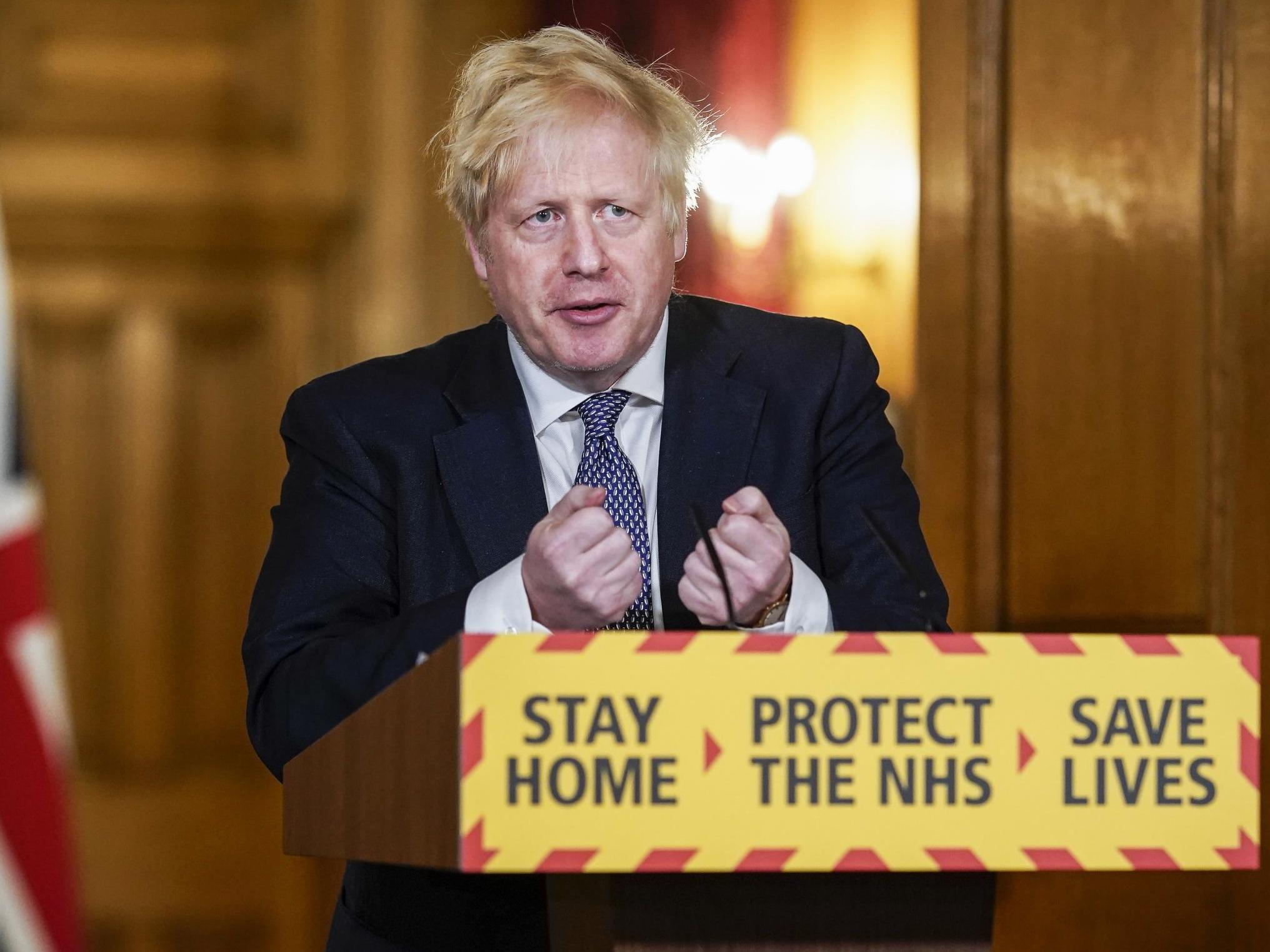
Face masks will play a part in easing Britain out of coronavirus lockdown, Boris Johnson has said in the most substantive comments yet from the government on the public use of the coverings.
“What I think Sage is saying, and what I certainly agree with is that as part of coming out of the lockdown I do think face coverings will be useful, both for epidemiological reasons but also giving people confidence they can go back to work,” the prime minister said during a Downing Street press briefing.
More details will be given next week, he said, as part of a new plan that charts the way out of lockdown.
Download the new Independent Premium app
Sharing the full story, not just the headlines
Professor Chris Whitty, the chief medical officer, and Sir Patrick Vallance, the chief scientific adviser, did not follow Mr Johnson’s comments with any of their own on face masks.
Mr Johnson was speaking during his first No 10 press conference since recovering from Covid-19, and a day after the birth of his son.
In Scotland, Nicola Sturgeon’s government has advised people to wear cloth masks when out in public and in other countries, like Austria, their use is mandated in certain places.
Ministers face growing calls including from within Conservative Party ranks to follow Ms Sturgeon’s lead in explaining how they plan to get Britain moving again. Mr Johnson said a full scheme would be unveiled next week.
Even as the clamour for an easing of restrictions intensifies, research suggests Britons increasingly believe the government was too slow to impose them in the first place, research suggests. Two-thirds (66 per cent) of people surveyed by Ipsos Mori held that view, as did 51 per cent of those who identified as Tory voters.
In the same press conference on Thursday Mr Johnson announced that the UK was “past the peak” of infections and on the “downward slope”. Britain’s death toll from coronavirus had risen to 26,771 in all settings, he added.
Questioned about that figure and how the UK compared to other nations, the PM said he wanted to wait until the pandemic had passed before making those comparisons. “At the moment, I just think the data is not clear,’’ he said.



